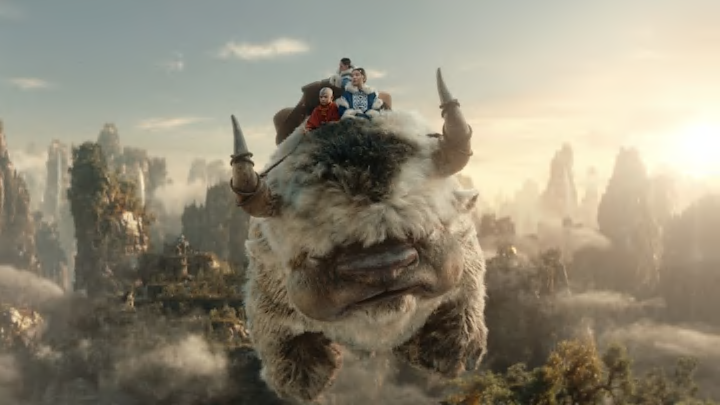Netflix has officially renewed Avatar: The Last Airbender, its live-action remake of the Nickelodeon animated series of the same name, for a second AND a third season. This means that the cast and crew will get to remake the whole story fans first fell in love with back in the 2000s, about a young boy named Aang who has the responsibility of putting a stop to a century-long war. Cue magic, cue adventure, cue romance, cue action. Cue...Avatar.
I'm happy the cast and crew will get to do this, since there were parts of the Avatar remake I really enjoyed. There were even a couple of things I thought the new show did better than the old one.
That said, general fan consensus has been that the remake show, while not a disaster like the 2010 Last Airbender movie, falls short of the sterling quality of the original animated series, and I have to agree. But there's always room to improve. In the interest of constructive criticism, let's run through a few ways the new live-action remake falls short of the animated original, and a couple of ways it improves upon it. If you happen to be reading this, Avatar: The Last Airbender creative team, we say this only because we want you to do your very best work.

The remake is worse because...Aang isn't as much fun
We already mentioned Aang (Gordon Cormier), the kid at the center of this story. He's the Avatar, the only person alive who can control, or "bend" all four elements: air, earth, fire and water. It's the Avatar's responsibility to bring balance to the world. The world has been out of balance ever since the Fire Nation started waging an expansionist war a century ago, so he has his work cut out for him.
In the first season of the original series, Aang's conflict is between his responsibility to save the world and his child-like desire to simply goof off and have a good time. Eventually he learns the importance of responsibility, which gives him a satisfying character arc. The remake more or less drops this. Aang talks about just wanting to fool around, but we never see him do much of it; he's serious about his goal of stopping the Fire Nation pretty much from the jump. The lack of an arc makes the show feel less dynamic.
The remake ties itself in knots trying to preserve some of the tension from the original series. Early on, it gives Aang a vision of a disaster that will befall the Northern Water Tribe. According to showrunner Albert Kim, this is done to give Aang's story a greater sense of "narrative compulsion" and to minimize distractions. But it doesn't work, because: A) He gets distracted anyway, making numerous pit stops on his way to the Northern Water Tribe, and; B) Aang getting distracted was an important part of his character, an internal block he had to overcome. Giving him a concrete goal by means of a magical vision is way less satisfying to watch.
It's also very weird that although Aang is taking his job as the Avatar more seriously in the remake than he does in the original show, he spends way less time learning new bending techniques like waterbending. (As the titular last airbender, he's already an expert with air.) A lot of these creative decisons seem in conflict with each other, so I hope the writing team makes sure they have all their ducks in a row before mapping out seasons 2 and 3.
Okay, and now for something the new show does better than the old. Click the button below to continue:
